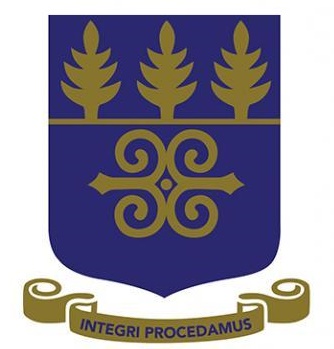The Bachelor of Medicine and Bachelor of Surgery (MB ChB) degree commonly referred to as the ‘medical degree’ trains physicians and surgeons to diagnose illnesses and prescribe and administer treatment for people suffering from injury or disease. Physicians examine patients, obtain medical histories, and order, perform, and interpret diagnostic tests. They counsel patients on diet, hygiene, and preventive healthcare.
Surgeons specialise in the treatment of injury, disease, and deformity through operations. Using a variety of instruments, a surgeon corrects physical deformities, repairs bone and tissue after injuries, or performs preventive surgeries on patients with debilitating diseases or disorders. Although a large number perform general surgery, many surgeons choose to specialise in a specific area such as: orthopedic surgery (treatment of the musculoskeletal system); neurological surgery (treatment of the brain and nervous system), cardiovascular surgery, otolaryngology (treatment of the ear, nose, and throat) and plastic or reconstructive surgery.
AIMS AND OBJECTIVES
Knowledge
- At the end of the training the student must be able to demonstrate knowledge and under-standing of the Basic, Para-Clinical, Clinical, Behavioural and Social Sciences including Public Health relevant to the practice of medicine.
Attitude
The student should be able to:
- Maintain the highest standard of professional conduct and medical ethics
- Demonstrate respect for, and the responsibility for, preserving human life from the time of conception and the need for human beings to live and be treated with dignity and humanity
- Accept and demonstrate the importance of team work in health delivery.
Skills
The student must be able to demonstrate appropriate:
- Communication skills
- Clinical Skills
- Promotive, preventive, rehabilitative skills and be able to organise and carry out health programmes in collaboration with other members of the health team to improve health.
- Management skills.
Life Long Learning & Continuing Professional Development
The student must be able to demonstrate:
- the importance of research in the management of patients and the advancement of medical knowledge and cultivate lifelong learning habits.
INDUSTRY AND GLOBAL TRENDS
Within the last two decades, medical practice has changed significantly and may continue to evolve in response to technology, cost and roles and expertise. In the past, without access to modern diagnostic tools, doctors had to be trained to rely mainly on their clinical skills to diagnose diseases but with advances in medical technology, many doctors now depend more on new gadgets for diagnosis. There is also a shift from general practice to specialisation. For instance, in Internal Medicine alone, there is a global shift from training general physicians who handle a wide variety of diseases to physicians who specialise only on certain parts of the human anatomy such as cardiologists, gastroenterologists, renal physicians, ermatologists, neurologists, and endocrinologists.
Another trend is the rising cost of drugs which forms a substantial part of medical treatment. For this reason, patients with limited financial means or without insurance will find it difficult to access quality healthcare.
The roles of doctors are also expanding. Aside their primary roles as healers, doctors are taking on additional responsibilities as administrators, business executives, book-keepers and storekeepers.

